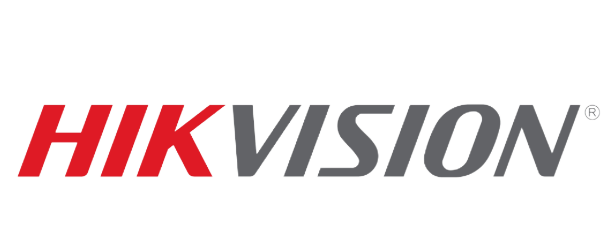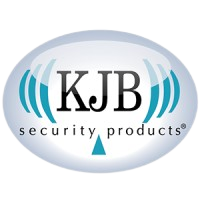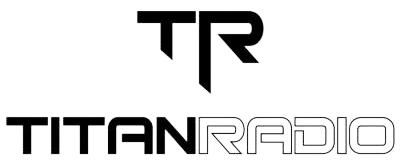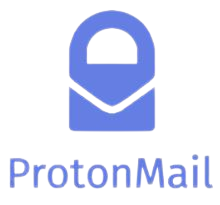
"Whistleblowing” – What is it, and why does it matter to me?
PLEASE BE ADVISED: SPYOPS LLC AND SPYOPS.NET IS NOT A LAWFIRM, NOR DIRECTLY EMPLOYS ATTORNEYS. THE INFORMATION PROVIDED HEREIN IS SOLELY FOR INFORMATIONAL AND HISTORICAL PURPOSES, AND SHOULD NOT BE RELIED ON (NOR CONSTRUED AS) LEGAL ADVICE. FOR INFORMATION RELATED TO WHISTLEBLOWING, PLEASE CONSULT AN ATTORNEY IN YOUR STATE WITH A SPECIALTY IN WHISTLEBLOWING, CONTACT THE OCCUPATIONAL SAFETY AND HEALTH ADMINISTRATION, OR THE UNITED STATES OFFICE OF THE SPECIAL COUNSEL.
“I’ve heard about this before. What *is* the definition of whistleblowing?”
“Whistleblowing,” as defined by the National Whistleblower Center, is where someone reports “waste, fraud, abuse, corruption, or dangers to public health and safety to someone who is in the position to rectify the wrongdoing.” In essence, aperson “blows the whistle” on something that would seem to be wrong, dangerous, illegal, or would or could cause harm. The act of whistleblowing, historically, has come with significant risk. When those who were suspected of whistleblowing, it was often met with retaliatory acts, such as firing, or laying-off of the person who was believed to be whistleblowing. Further, softer forms of retribution could be denial of promotions or pay increases, denial or sanctioning overtime, reassignments or a reduction in billable hours or compensation.
“Given these risks, why would I, or anyone, participate in whistleblowing? I could have so much to lose.”
That’s a very good question – and honestly, it’s a healthy thing to ask yourself. Sure, the reasonable person wants to reduce risks, fraud, corruption or risks to health or life – but, we all have bills to pay. A healthy mind weighs risks to themselves, versus what the potential outcome could be. We all want safe, ethical and sane places to work – “but, at what cost to me?” you may find you asking yourself.
In the United States, whistleblowing has federal protections – in that, you cannot be retaliated against for “blowing the whistle” on waste, fraud, abuse, etc – particularly if those matters are related to safety or the preservation of life. Signed into law in 1863, America’s first law related to whistleblowing, the False Claims Act of 1863 (31 U.S.C. §§ 3729) was signed during the Civil War by President Abraham Lincoln to combat fraud, waste and low quality goods and services provided by contractors to the armed forces of the Union.
Insodoing, Congress and President Lincoln paved the way for allowing those who reported such action to be given a reward for reporting it. Indeed, a whistleblower can even be given monetary awards if the claims are proven true in court. This is even required by law!
Often referred to as “America’s most powerful whistleblower law,” the False Claims Act (also known as “the FCA”) gave considerable incentives for people to report accurate and true claims when it came to waste, corruption, gaps in safety, etc – but what protections could a person expect? After all, a nice payout may prove to be years out, and retaliation can happen quickly. The Occupational Safety and Health Administration has your back here, particularly in the private sector.
Per OSHA, retaliation “occurs when an employer (through a manager, supervisor, or administrator) fires an employee or takes any other type of adverse action against an employee for engaging in protected activity.” By using the power of OSHA, or even an attorney – a whistleblower who believes they have been retaliated against can file a claim, plead their case, and let an uninterested third party (i.e., the court, arbitrator, etc) make the decision. Even temporary workers (for example, those employed through a staffing agency) even have protections against retaliation for whistleblowing.
“This is all great, but who is a whistleblower? Is there a procedure?”
Every situation is different – and as such, there could be rules to follow to get all the rights, benefits and protections in relation to whistleblowing.
In the private sector, typically involving the government through OSHA is the way to go. Whistleblowing laws in the United States are typically handled by OSHA, and they are a great resource for knowing your rights, responsibilities and duties, to be a whistleblower in the private sector.
However, working for the government or for claims involving the government, things may get a little more complicated.
Government agencies often have specific steps that must be taken and specific offices that must be spoken to, to ensure whistleblower protections are ensured. According to the Federal Trade Commission, the primary offices and agencies involved in government whistleblowing are as follows:
- Informing a supervisor or someone higher up in management; and/or
- Submitting a complaint to the agency or department’s Office of Inspector General; and/or
- Filing a complaint with the Office of Special Counsel (also known as the OSC, www.osc.gov)
“What happens when I try to whistleblow, and I don’t follow all the rules?”
This is more of a concern for government employees and contractors; but it is absolutely a valid question. Because, particularly when it comes to anything that could potentially be classified or otherwise involve controlled information – the government is very touchy about how anything classified or controlled is handled.
“I do not want to live in a world where everything I do and say is recorded. That is not something I am willing to support or live under.”
– Edward Snowden
A recent example of this would be the Edward Snowden case.
Hailed as a hero by just as many that see him as a traitor, Edward Snowden, (who at the time) was working for Booz Allen Hamilton, a contractor for the United States Government. He had “virtually unlimited” access to NSA data, because of the position he held; and as a result, came across information and programs that he felt were unlawful and unethical.
The big difference was how Edward Snowden handled the information. He, at first, appear to inquire about the authorities related to whistleblowing in an email that was released by the United States Government – and whether or not he followed through with those is up to debate; however, he felt as though his concerns were not handled as thoroughly as he wished, he leaked information he felt necessary to reveal the existence of several classified government programs involved in signals intelligence and encryption breaking to media outlets that reported them to the public, including The New York Times, the CBC, Der Spiegel, and Sveriges Television in Sweden. The United States government charged Edward Snowden with espionage and theft of government property in June 2013. In this effect, the government said to him, “You may have felt as though you were performing whistleblower actions, but you didn’t do them in the proper way.”
His reports that ultimately resulted in the information being released did not flow through the proper Inspectors General route, the Office of Special Counsel, or through his management – and instead, he chose to release it to the media. Whether or not he is considered a proper “whistleblower” is open to individual interpretation – but because he did not follow proper procedural guidelines for reporting and whistleblowing, the United States government considers his actions theft at best, and treason at worst.
Edward Snowden was charged with conveying classified information to an unauthorized party, disclosing communications intelligence information, and theft of government property. He has lived in the Russian Federation in exile since mid-2013. In exchange for protection from extradition to the United States, Snowden swore allegiance to the Russian Federation, received a passport and was granted citizenship by decree, signed by Russian President Vladimir Putin in late-2022.
"I felt that as an American citizen, as a responsible citizen, I could no longer cooperate in concealing this information from the American public. I did this clearly at my own jeopardy and I am prepared to answer to all the consequences of this decision.”
--Daniel Ellsberg
Another example is that of Daniel Ellsberg and the “Pentagon Papers” incident.
An employee of the RAND Corporation, he and a colleague duplicated classified information that was in their possession and had lawful access to that indicated, among other things, that the Johnson Administration had apparently widened the war in Vietnam in secret, without reporting it to the public or Congress.
Ellsberg caused the documents to be released by the New York Times and insodoing, did not go through proper whistleblower procedures – effectively wanting to bring his case directly to the public, as opposed to the “food chain” of management or other federal authorities.
The government, wanting to somehow “reign in” unauthorized leaks of state secrets in the future, decided to prosecute. Ellsberg surrendered to the United States Attorney and confessed to his actions – indicating that he had given the information to the media.
“That’s all great – how does this matter to me?”
One, you may find yourself in a position to need to blow the whistle on something. Knowing your rights, responsibilities and your duties as a whistleblower – to not only protect yourself, but your circumstances, is absolutely crucial, should you want the legal protections whistleblower status provides.
Secondly, whistleblowing, and knowing what is related to it, allows us all a safer environment to work in. Further, by allowing our fellow employees to blow the whistle on situations or problems allows us all to live and work in an environment that is not only fair – but also safe for us all, and is following rules, regulations and law to the highest ethical standard – something each and every one of us deserve.
Gathering evidence to support any whistleblower claims are very important. After you’ve consulted with a legal specialist or a member of the government about what exactly you can do to gather evidence for your claims, SPY OPS is a source that can help you – be it photographic, video or audio evidence to support your claim. Give us a call or stop in to learn more!
Should you ever have any questions about whistleblowing, your duties, responsibilities and rights as a whistleblower, visit https://www.whistleblowers.gov/about-us or contact an attorney in your state, who has a specialty in whistleblower protections.
PLEASE BE ADVISED: SPYOPS LLC AND SPYOPS.NET IS NOT A LAWFIRM, NOR DIRECTLY EMPLOYS ATTORNEYS. THE INFORMATION PROVIDED HEREIN IS SOLELY FOR INFORMATIONAL AND HISTORICAL PURPOSES, AND SHOULD NOT BE RELIED ON (NOR CONSTRUED AS) LEGAL ADVICE. FOR INFORMATION RELATED TO WHISTLEBLOWING, PLEASE CONSULT AN ATTORNEY IN YOUR STATE WITH A SPECIALTY IN WHISTLEBLOWING, CONTACT THE OCCUPATIONAL SAFETY AND HEALTH ADMINISTRATION, OR THE UNITED STATES OFFICE OF THE SPECIAL COUNSEL.









